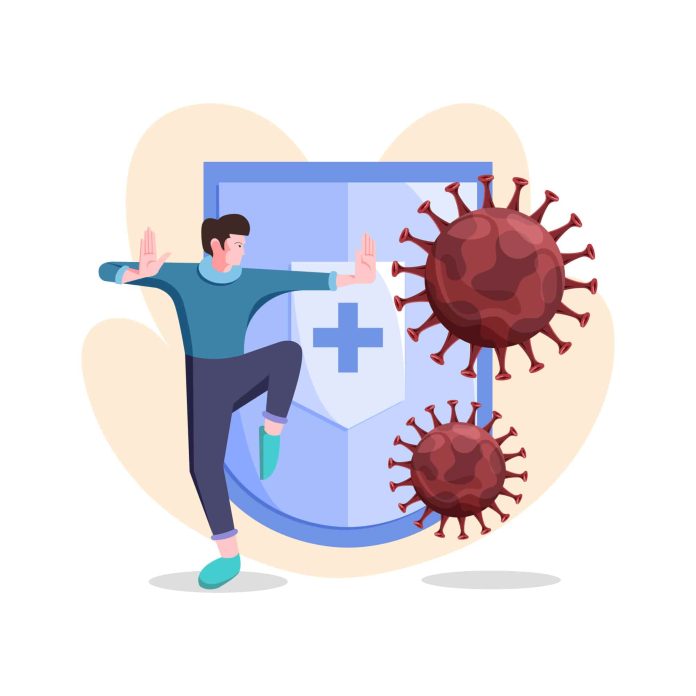Ever wished your body had a built-in shield against illness? While there’s no magic bullet, incorporating natural herbs into your routine can be a powerful strategy. In this guide, we’ll explore expert advice on harnessing the immune-boosting potential of nature’s bounty, helping you understand which herbs can make a difference and how to use them safely and effectively.
I don’t hold a degree or credential in herbal remedies and immune health, but I incorporate and suggest herbs and natural remedies into my clients’ daily diets. I’ve collaborated with numerous clients to optimize their immune health through dietary and lifestyle interventions, including the integration of immune-boosting herbs. Here are my top 5 herbs:
- Ginger: This is the most common and easily accessible herb with potent properties for the immune system. Ginger contains gingerol, a bioactive compound with anti-inflammatory and antioxidant properties. Studies have shown that ginger may help modulate immune responses, reduce inflammation, and alleviate symptoms of respiratory infections. Source 1, Source 2
- Turmeric: Curcumin is the active compound in turmeric, providing strong antioxidant and anti-inflammatory properties. Research suggests that turmeric supplementation may support immune function by enhancing the activity of immune cells and reducing inflammation. Source
- Reishi Mushroom: Reishi mushrooms contain bioactive compounds like beta-glucans, polysaccharides, and triterpenes, which have potent immune-modulating effects. A study indicates that reishi mushrooms may enhance immune function by increasing the activity of immune cells and reducing inflammation. Source
- Ginseng: Ginseng, particularly Asian ginseng (Panax ginseng), is renowned for its adaptogenic properties, helping the body adapt to stress and support overall health. While not traditionally categorized as an immune-boosting herb, ginseng does have some immune-modulating effects that can indirectly support immune function. Source
- Elderberry: Elderberry is rich in antioxidants, particularly anthocyanins, which support a stronger immune system. It can help in reducing inflammation and supporting the production of cytokines. Studies indicate that elderberry supplementation may reduce the severity and duration of cold and flu symptoms. Source
Catherine Gervacio, Registered Dietician and nutrition writer for Living.Fit
Most herbal hot teas have serious health benefits based on their phytonutrient contents. Each is uniquely beneficial. One herbal tea, in particular, is a powerhouse of vitamin C; Hibiscus Herbal Tea.
Vitamin C has more benefits than just immune support, studies show it can also improve and protect lung health. Part of its antioxidant properties help it to fight off infection that would potentially threaten lung health, like pneumonia, and prevent free radical damage to cells in the lungs. Yes, hot teas can be consumed every day, and in some cases this boosts the benefits you’ll experience.
Some herbal hot teas are naturally caffeinated while others are caffeine free. This factor will play the largest role in determining what time of day you should drink them.
Trista Best, Registered Dietitian at Balance One Supplements
I believe that William’s insights into herbal medicine, holistic health, and his experiences as the founder of Goldthread Tonics could offer your listeners a fresh perspective of the plant-based world. He can get down to the details of how consuming plants like Elderberry, Turmeric, + Ginger during the Winter months will help support the body’s natural defenses or even talk about how aloe vera, chia seeds, and olive oil can help you get glowing skin. He’s also available to talk about how plants assist our overall wellbeing (whether that be minimizing inflammation, boosting energy, building immunity, improving digestion, improving sleep, etc.).
William Siff, founder of Goldthread Tonics
Echinacea is a herb that is commonly used as a dietary supplement to boost the immune system and treat respiratory infections, such as the common cold. While there is some evidence to suggest that Echinacea may have benefits, it is not without risks.
On the one hand, some studies suggest that Echinacea can help reduce the duration and severity of cold symptoms. It may also have anti-inflammatory properties and may help boost the immune system. Additionally, some studies suggest that Echinacea may be useful in treating upper respiratory infections, such as sinusitis and bronchitis.
On the other hand, Echinacea can cause side effects, such as nausea, dizziness, and allergic reactions. It may also interact with certain medications, such as immunosuppressants and antipsychotics. Additionally, the quality and purity of Echinacea supplements can vary widely, which can make it difficult to know what you are actually getting.
Lisa Richards is a nutritionist and author of the Candida Diet
Herbs can boost the immune system through several different pathways, and lucky for us, many have been well researched and documented. Herbal medicines like Astragalus, Reishi (technically a mushroom), Skullcap, and Ginger all have an immunomodulating effect, meaning that they help to balance and strengthen the immune system without causing your body to over-react or being attacking itself, as can happen in some autoimmune conditions. Herbs like ginger and reishi have direct antibacterial effects, making them great choices not just for the long term but also for acute moments like when you feel a sore throat coming on.
Rachael Miller, Founder of Zhi Herbals
The evidence supporting immune-boosting supplements is most robust for vitamins and minerals such as Vitamin C, Vitamin D, and Zinc. However, one herbal supplement that stands out with a solid scientific foundation as an immune booster is elderberry. It appears particularly effective in combating conditions like influenza and upper respiratory infections (source: https://pubmed.ncbi.nlm.nih.gov/30670267/). Before integrating any supplements into your daily regimen, it’s crucial to consult a doctor as they may sometimes lead to digestive problems and interact with existing medications.
Catherine Rall, Registered Dietitian, Happy V


